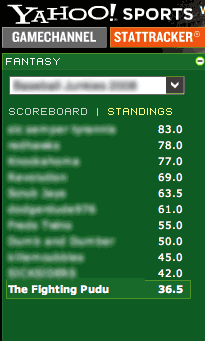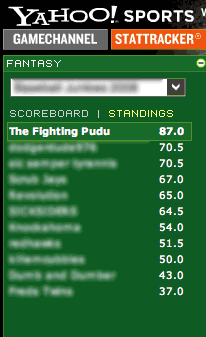Last Saturday night, I was walking home from late drinks with friends when I heard a loud metallic BANG about thirty or forty feet to my left.
I looked up, and two cars had collided, apparently at fairly high speed. And the vector product of their interaction sent them in a new direction: directly at me.
Yipe.
You don’t see cars coming right at you in the middle of the sidewalk very often. This was like one of those movie moments when a character looks up and sees a large, moving, out-of-place object — a falling building, a crashing plane, a strangely airborne car, etc. — that is about to suddenly kill him.
Two tons of metal were hurtling directly at my thighs. I’d have maybe half a second to do something about it.
Mostly, I said the word “shit” over and over. Also, I ran like hell. All I could come up with.
Fortunately, since the cars were also still braking and rotating, the one barreling most perilously at me slowed rapidly as its tires became perpendicular to the direction of travel, and I probably could have just stood there like an idiot (instead of running like one) and escaped. False alarm. No actual danger. (For me, anyway. One of the drivers seemed pretty hurt, although he refused medical assistance. The other driver is probably in pretty big trouble; she fled the scene, but a passing paparazzi — the same guy who got beat up on a Malibu beach recently, in fact — happened to see the accident and scribble down the license number.)
Still, for all of one second, I had pretty good reason to wonder if my number was up.
In the movies, that’s the sort of thing that gets people to reevaluate their lives, maybe improve their relationships or pursue their life’s dream or stop drinking or, hell, I dunno, join a gym or get that nifty sex change or at least form a freakin’ 4-H club or something. So for the last two days, I’ve been kind of waiting for my big insight or important life-changing decision.
Come on, insight! Here I am! Ready and waiting!
But so far… nothing. Nada.
It appears, shockingly, that running away from a large noise may have granted me no special knowledge.
What a ripoff. Makes it seem hardly worth almost getting killed in the first place.
I wonder if this is because (a) deep down, I truly believe my life choices are all very good, (b) I don’t, but I have no real interest in happiness whatsoever, or (c) something important is still brewing that I haven’t yet noticed.
All of these seem unlikely.
So, great: I don’t even have any insight about my own lack of insight. Well, crap.
Of course, if this sort of thing ever worked, Evel Knievel would have been the wisest man alive.
Man, Evel Knievel would have been like an oracle. With, like, robes, and a big throne, and people would have come to him with their problems, and Evel would have been all Obi-Wan, stroking his chin and gesturing somberly with his scepter, and then doling out advice in little aphorisms whose meanings would slowly unfold as the listener would contemplate and grow.
And then he’d, like, go jump over some sharks in a minibus. And then he’d come back and be even wiser.
But he didn’t. That is also disappointing.
Bottom line: if I’ve gained any larger awareness of the world to share from the experience, it is only this: all of us, brothers and sisters, everywhere on this green earth, should try, every day and in every way, not to get mashed by a Lexus.
This is my advice to you.


 Here’s the deal: by early May, my team (“The Fighting Pudu”) was already struggling in last place. I’d had a bunch of injuries, plus I’d drafted both
Here’s the deal: by early May, my team (“The Fighting Pudu”) was already struggling in last place. I’d had a bunch of injuries, plus I’d drafted both 